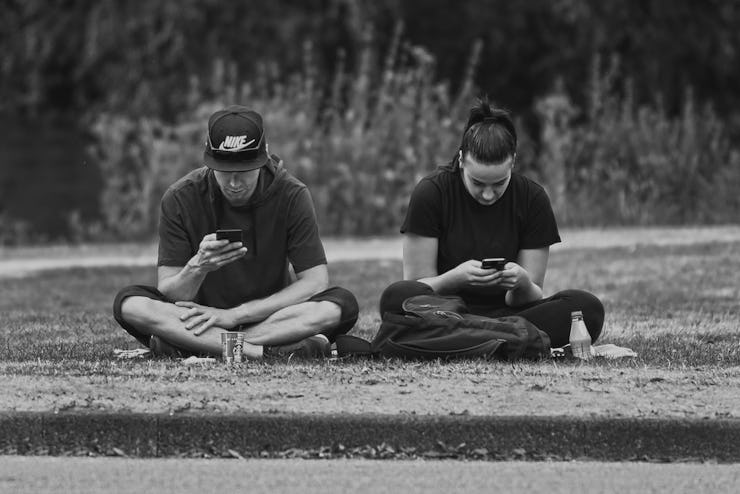24/7 Work Emails Are Harming Your Relationships, Warn Researchers
"Over the course of a month, it just crushed her."

It all started when my wife got a new boss,” William Becker, Ph.D., a co-author on a new study showing the danger of constant work emails, tells Inverse. “One of those bosses that actually expected employees to check email all the time and respond within minutes at all hours. I saw that over the course of a month, it just crushed her.”
Becker, a professor of management at Virginia Tech University, worked with scientists from two other universities to characterize that feeling of insidious stress that accumulates as work emails pile up in your inbox: They call it “always-on culture,” and according to them, it could be driving a wedge between you and your significant other.
The work behind this paper is being presented this week at the Academy of Management’s annual meeting in Chicago. Becker, of course, isn’t the only person to notice how damaging unregulated work expectations can be. In recent years, a series of bills introduced around the world have emphasized the “right to disconnect.” In March, for example, New York City Council Member Rafael Espinal introduced a bill to ban employee-employer email contact after work hours. In France, there is legislation that actually protects workers rights to ignore work-related emails past 6 pm. The Philippines and Italy also have similar laws.
Hours worked in the US (blue) France (red) Italy (purple) and The Philippines (green). All of these countries except the US have "right to disconnect" laws.
Inspired by this observation, Becker partnered with Lehigh University’s Liuba Y. Belkin, and Colorado State’s Samantha A. Conroy, Ph.D., to probe into what they hypothesized is a new type of workplace culture that demands constant connectedness. They first distributed a three-question survey to 108 full-time employees, asking about expectations from bosses, managers, and fellow employees. It soon became clear that these expectations didn’t always come from the top down. Rather, they collectively amounted to a sense that any individual needs to be in constant contact not just because their boss is but because their coworkers are as well. The strength of this culture, the results showed, correlated with the amount of time people spent checking their email during after-work hours.
With that behavioral pattern established, Becker and his team looked into how that constant email-checking might affect the strength of each employee’s relationships. Assessing 138 couples, they found not only that the stress on both partners tends to increase with constant email checking but also that it actually affects how the employee’s spouse feels about the relationship overall. Constant email checking made partners feel as if the relationship was threatened, even if the employees themselves didn’t notice a change.
“The reason you get into a close relationship is to have someone you can really be present with and really be mindful of,” Becker says. “If that person can’t talk to you for more than ten minutes without checking their phone or looking at their email, that starts to degrade that sense of being present and mindful.”
Becker suggests that his disconnect happens because people maintain different mindsets for work and different mindsets for interacting with their loved ones. “One of the things that’s good about coming home to your family is that you get out of your work mindset and into your real-world mindset,” he explains. “You can be caring and engage with people and not be so tense, but this literature suggests that every time you check you email, your mindset switches back to work.”
While it might seem easy to resent a partner who’s unable to detach from their work emails, the results of Becker’s previous work have shown that these are cultural expectations that often must be met and, as such, are often outside of any one employee’s control. This is perhaps is why some countries have turned to federal legislation as an excuse not to answer your emails. The United States may not yet have a “right to disconnect,” but if Becker’s results are well received, it may be only a matter of time before these rights become enshrined: not only for cultural benefits, but for health reasons as well.